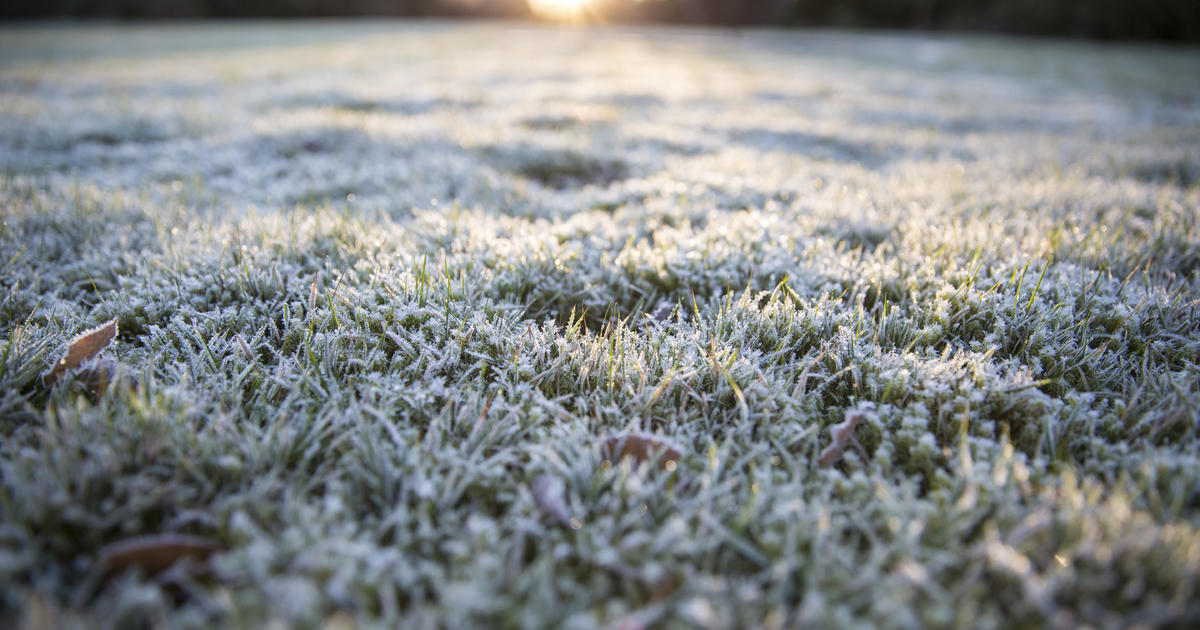Doctors Say Some May Be Suffering From 'Male Menopause'
PITTSBURGH (CBS) — It is the one thing that none of us can stop. Time marches on, even if our bodies don't quite keep up.
"You know when you're not as alert, not as focused, not concentrating like you used to be," Paul Kozlicki, an former toy company executive who lives in Minnesota, said.
In his mid-60s, Kozlicki said he and his wife felt that clock ticking.
"I wasn't as active, getting lazy, a little less productivity. Not getting things done," Kozlicki said.
For many men, it's just part of getting older. Some doctors call it andropause or "male menopause." With a woman, it's clear when menopause begins. For men, it's less clear. It's generally thought to be when testosterone levels gradually drop.
Isn't this just part of getting older?
"It could be. But if there's a solution out there, why wouldn't you want to find it?" Kozlicki said.
Dr. Mark Erhard is a cardiologist. He and his wife run a clinic in Wayzata specializing in bio-identical hormone replacement, treating men with what they consider to be abnormally low testosterone.
"This is so under-diagnosed," Dr. Mark Erhard said, pointing to research suggesting that two in five men in their 60s have low testosterone.
Dr. Lisa Erhard is an OB/GYN who was doing hormone replacement on menopausal women. She said women would then ask her if she could do anything to help their husbands, who had become "grumpier old men."
"To have a patient come back and say, 'I feel like myself again,' that's wonderful," she said.
There's no debate that as men turn 40, testosterone levels start to fall. The question is whether lower levels of testosterone affect things other than sexual desire and activity.
Drug companies like the makers of AndroGel and Axiron argue that testosterone can solve a lot of problems. Perhaps you've seen commercials for topical sprays or gels to fight "Low T."
Kozlicki's search for answers led him to the Erhards' Wayzata clinic. He was given a male hormone health questionnaire with 30 questions, including: "Is sex less satisfying?" "Are you easily annoyed?" "Is your thinking not as sharp?"
Patients with enough "yes" answers are given blood tests, and Kozlicki tested with what Mark Erhard considered to be a low level of testosterone.
"Below the range I should be in for my age group," Kozlicki said, characterizing his level.
Kozlicki had six of tiny bio-identical testosterone pellets implanted beneath the skin near his behind, which he said he didn't feel at all. But he felt the results within a week.
"It changes their lives," Mark Erhard said. "I've warned some guys. Are you ready for the change? You'll have energy you've not felt in 25 years. You'll see life differently."
Join The Conversation On The KDKA Facebook Page
Stay Up To Date, Follow KDKA On Twitter
Kozlicki said his quality of life was good before testosterone therapy and great after.
"I literally had a great night sleep. I'm jumping out of bed in the morning," he said.
Test results confirmed the pellets had more than tripled his testosterone levels.
But testosterone therapy is relatively new, and the data on whether it works on more than just low libido is mixed. The possible upside is big for men looking to keep their edge, maybe even a larger upside financially for drug makers.
"This is an area of interest, absolutely. It's a huge question," Dr. Bruce Redmon, an endocrinologist at the University of Minnesota who specializes in male reproductive and sexual function, said. "I think a lot of the better science would question how many of those benefits are real."
The University of Minnesota is part of a large new study just published in the New England Journal of Medicine. 50,000 men older than 65 were screened for low testosterone, but only 800 tested low enough to be included.
Of the 700 who completed the year in the study, the half put on testosterone gels had better sexual desire and activity, they reported walking more strongly too.
"Men who received testosterone reported better sexual function, including activity, desire, and erectile function, than those who received placebo," researchers said.
But testosterone did not improve focus, change sleep, or lead to walking longer distances.
"However, testosterone was associated with small but significant benefits with respect to mood and depressive symptoms. Men in the testosterone group were also more likely than those in the placebo group to report that their energy was better," researchers reported.
Because only men older than 65 were tested, and for just one year, researchers recommended "larger and longer trials." The only large study so far is from the Kansas City VA Medical Center, looking at medical records of tens of thousands of veterans. It found a strong relationship between treating low testosterone and "a significant reduction in all-cause mortality, [heart attack], and stroke."
Which begs the question: Why are people so happy with their results after paying for treatment?
"There may be a placebo effect in some cases," Redmon said.
On the other hand, Mark Erhard says he sees the results in his patients.
"You optimize a testosterone level, you don't see a placebo. That's why more than 90 percent who start this therapy stay with this therapy," he said.
Kozlicki says he, without a doubt, is a believer. He says taking testosterone pellets has turned back the clock.
"I used to walk one mile a day, now I'm walking six. I found myself more active, more alert, focused. And just getting more things done," he said. "It works. I feel like I'm 30. Everything improved. My whole life improved dramatically."



